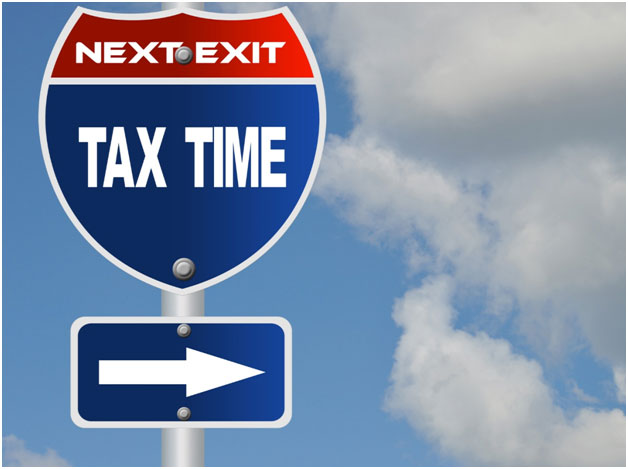When you are part of the trucking industry, every tax return is unique. Drivers are subject to specific requirements.

It is important to know which expenses are deductible and which are not. In this blog post, you will learn why you need a tax home, which tax forms to use, when to take deductions, and when to seek professional help.
Why You Need a Tax Home
Truck drivers must maintain a tax home to claim some deductions. If you claim certain long-haul expenses without having a tax home, the IRS will not allow these deductions.
The IRS defines a tax home as the city or general area in which you work. A tax home has nothing to do with where you live. For some drivers, this may be a base or dispatch center. If you are an owner-operator using a residence as a tax home, make sure you help maintain the property while out on the road.
According to a 2015 article in the Journal of Accountancy, a Missouri trucker found this out the hard way. Since his out-of-state employer did not require him to return to a base, the driver used his mother’s address as his permanent address. However, he did not live there or help pay rent or any other living expenses. The IRS disallowed over $19,000 of per diem and hotel expenses he deducted on his return. This left him with substantial penalties for underpaid taxes. Therefore, it is important to have a tax home for truck driver tax deductions.
Filing Taxes for Truck Drivers
Many company drivers receive a W-2 form that reports their wages and income. Employers must mail these forms to the employees by the end of January. You will report this income on your Form 1040 or 1040A. The short form, or Form 1040EZ, does not allow you to take advantage of trucking industry deductions.
Owner-operators have a couple of different options when reporting income. You can rely on your detailed records. However, if you have worked as an independent contractor for a company, you will receive Form 1099. This is used to report miscellaneous income.
If you are an agent or commission driver, you may see the “Statutory Driver” box checked on your W-2. Statutory and self-employed drivers should also fill out Schedule C. This form is used to assess business profit and loss.
Truck Driver Tax Deductions
The IRS allows truck drivers to deduct “ordinary and necessary” business expenses. This can vary even on an individual level, but some expenses are generally accepted.
Truck maintenance
If you pay out-of-pocket for truck maintenance and supplies, you may be able to deduct these costs. These expenses can include oil changes, new tires, washer fluid, and cleaning supplies. Keep in mind if your employer reimburses you, you cannot deduct it.
Union or Professional Association fees
If you pay fees as part of a union or trucking industry organization, you can deduct these fees from your taxable income.
Uniforms
Uniforms are considered deductible, but only if they are required, and if your employer does not pay for them. This includes specialized work gear like protective gloves, goggles, or boots. Cleaning expenses for your clothing are also deductible when you are away from home.
Office supplies
If you use supplies to keep track of your route or your day, these are deductible. Examples of tax-deductible office supplies include logbooks, clipboards, writing supplies, maps, and staplers.
Sleeper berth
If you use a sleeper berth, you may be surprised at the items you can deduct. Bedding, cab curtains, alarm clock, mini-refrigerator, and first aid supplies are legitimate taxable expenses.
Electronic devices
If you have a cell phone that you only use for work, you can deduct associated costs from your tax return. GPS units and CB radios are also considered tax deductible.
Travel expenses
If you have a tax home, you can deduct expenses for overnight stays, including hotel rooms and per diem expenses. The standard meal allowance varies by location. However, truckers can take a higher special meal allowance because of the Hours of Service (HOS) regulations. Check IRS Publication 1542 for current amounts.
Work-related fees
Several work-related fees are considered tax-deductible. They include, but not limited to
- Drug testing fees
- Driver license renewal fees
- DOT physical exams
- Sleep apnea study costs
Other Common Truck Driver Tax Deductions
Several tax deductions are available to the public but are no less valuable to drivers. Do not overlook these common deductions.
Lifetime Learning and American Opportunity credits
If you, your spouse, or child is taking college classes, you may be eligible for these credits. They are designed to reimburse students for some of the tuition and fees they paid. Keep in mind that if grants or scholarships covered your expenses, you can not use these credits.
Child and dependent care
This credit helps you recoup some of the costs associated with child or dependent care. Most children must be under age 13 to qualify for the credit. However, disabled children or spouses are eligible, regardless of age.
Child tax credit
You may be able to claim a credit of up to $1,000 per child under the age of 17. The child must live with you most of the year, and you must pay more than half of their living expenses.
Earned income tax credit
This income-based refundable credit can provide you with $6,000 or more in reduced tax liability. Originally developed for low-income workers, it has been extended to include some middle-class individuals and families.
Tax Preparation for Truck Drivers
Here are a few tips when filing your taxes.
- Drivers can claim mileage as a deduction, but not at standard rates. Keep track of actual expenses.
- You cannot claim tax deductions for expenses your employer reimburses.
- Tax software does a decent job, but it is not the same as hiring a professional. If your income tax bracket has gone up in the last few years, consider hiring a tax preparer.
- Hold on to your receipts. The IRS can audit tax returns up to seven years old; store your receipts for at least five years to be safe.
When filing taxes, it is important to know all the rules and what deductions you can take. For truck drivers, there are specific rules for claiming tax deductions. Do not make changes or over-claiming these deductions. If you need additional help, ask a tax professional to review your accounts.


